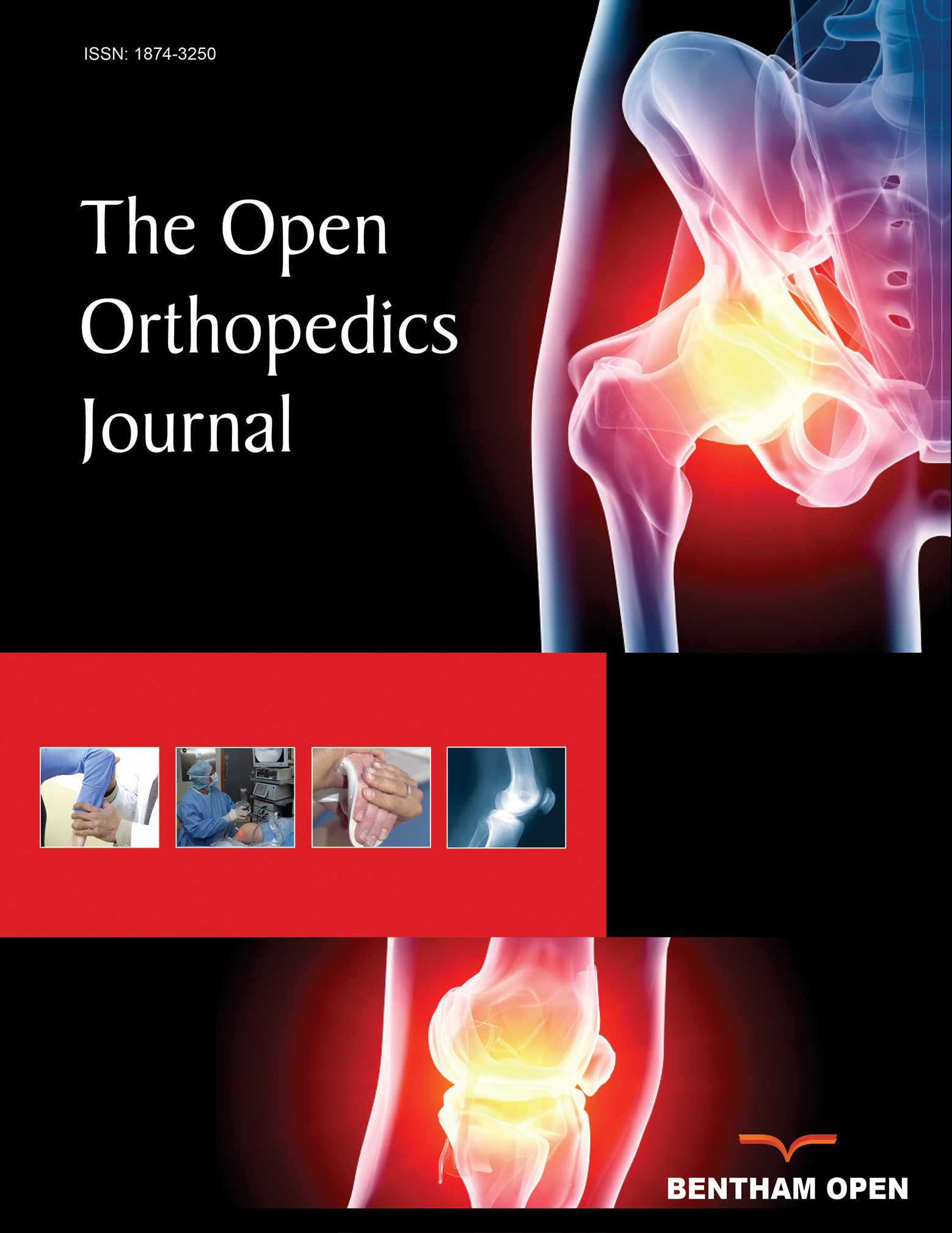All published articles of this journal are available on ScienceDirect.
Hyaluronic Acid (HA) Viscosupplementation on Synovial Fluid Inflammation in Knee Osteoarthritis: A Pilot Study
Abstract
Objective:
This study examined the changes in synovial fluid levels of cytokines, oxidative stress and viscosity six months after intraarticular hyaluronic acid (HA) treatment in adults and elderly adults with knee osteoarthritis (OA).
Design:
This was a prospective, repeated-measures study design in which patients with knee OA were administered 1% sodium hyaluronate. Patients (N=28) were stratified by age (adults, 50-64 years and elderly adults, ≥65 years). Ambulatory knee pain values and self-reported physical activity were collected at baseline and month six.
Materials and Methods:
Knee synovial fluid aspirates were collected at baseline and at six months. Fluid samples were analyzed for pro-inflammatory cytokines (interleukins 1β, 6,8,12, tumor necrosis factor-α, monocyte chemotactic protein), anti-inflammatory cytokines (interleukins 4, 10 13), oxidative stress (4-hydroxynonenal) and viscosity at two different physiological shear speeds 2.5Hz and 5Hz.
Results:
HA improved ambulatory knee pain in adults and elderly groups by month six, but adults reported less knee pain-related interference with participation in exercise than elderly adults. A greater reduction in TNF-α occurred in adults compared to elderly adults (-95.8% ± 7.1% vs 19.2% ± 83.8%, respectively; p=.044). Fluid tended to improve at both shear speeds in adults compared to the elderly adults. The reduction in pain severity correlated with the change in IL-1β levels by month six (r= -.566; p=.044).
Conclusion:
Reduction of knee pain might be due to improvements in synovial fluid viscosity and inflammation. Cartilage preservation may be dependent on how cytokine, oxidative stress profiles and viscosity change over time.


